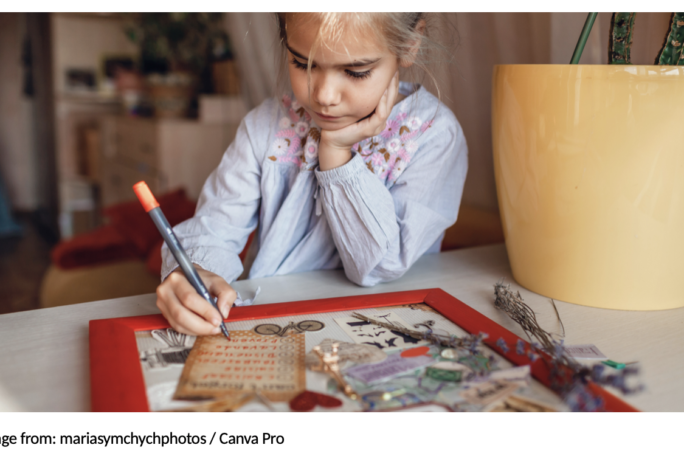Article By: Kelly Kirk-Xu & Emily Stevens
We all dream about raising our children to be happy, content, and (let’s face it) financially stable. Of course! If kids can learn financial skills from a young age, their entire life will be easier. When it comes to money, “time” can be your best friend… so the longer you have to let money grow – and the earlier you start saving, the more you’ll have in the end. With more money, you have more opportunities (for yourself and to share others).
Money mastery tends to come with years of mistakes and experience, which is exactly why letting kids spend their own money may be just the thing to help your little one become a money master! Here at Walter the Vault, we have covered the topic of giving your child an allowance a few times, but what is a parent to do as their child prepares to spend the money they have saved? Actually, they may learn to teach themselves about what they truly do & don’t want to buy.
Allowing your child to make their own money decisions might be a little nerve-racking at first. You may find yourself wondering if you should give them some guidance when they are preparing to blow it all on that king sized candy bar or if you should set rules about what they can and can’t spend their money on. Do you want to know what we think?
Allowing your little one to spend their money how they think is right will be a great teaching opportunity to help them learn about money! Yes, your child is going to make a mistake or two. They might have a goal to save up for the newest Nintendo Switch game, but end up blowing their savings on a sparkly new toy and fast food.
However, allowing your child to make these mistakes when the consequences are not too serious will help prevent them from making these mistakes when it matters. Which do you think would be a harder blow- having your five-year-old splurge their toy money on a Big Mac or having your 25-year-old splurge their rent money on a shiny leather jacket? Plus, some kids may start to watch their money quickly disappear, and they’ll realize “hmm… do I really want this?” the next time they go to buy something. Chances are, they’ll start to figure out what they truly want, when their resources are limited.
In addition, it’s great to teach your children to set goals on what they want to buy. When they only get a little amount of money at a time, they can buy small things with that money. However, if they learn to “save” or even “invest” their money, they will watch their money grow. With extra money, they can buy bigger/better things. It’s great for kids to have these experiences and learn for themselves.
Letting your kids spend their own money will allow them to understand the consequences of their actions before things get serious.
Article By: Kelly Kirk-Xu & Emily Stevens
“Giving” is a huge part of building financial literacy, right? We want to share with others & show our appreciation through the act of “giving”. However, if you have ever had to budget for buying gifts for your loved ones, you know that gifts add up fast. It’s easy to spend more than you expected, getting carried away with your love for others. Gift budgets will follow you throughout the year as birthdays, anniversaries, celebrations, and holidays come and go.
To begin, you may want to have your child write a list of the people they’d like to give gifts to and what they would like to get them. This will help you and your child get a better idea of how much money you should be saving to meet this goal.
Once you have tallied up the total of the gifts your child would like to give, you can now create a realistic budget for them to stick to! Whether you are having your child save their own money or giving them a set amount they can spend, helping them understand that everything tends to cost money, whether they buy it or make it at home, will help them on their journey to master their money!
Kids tend to be great visual learners as they are still learning about numbers and letters. If your child is working to save their own money, having them categorize their money will help them get a greater grasp about budgeting. While some categories may include savings for a specific toy or trip and spending money, you can also create a category with gift-giving money.
When it comes time to buy the gifts, your little one may become tempted by the alluring things scattered throughout the shopping center. Remind them of their original goal and encourage them to stick to the plan. Gift-giving is a fulfilling and wonderful thing. As your child learns how to give without going over budget, they will become that much closer to understanding the value of money and grasping the concept of finances.
Article By: Kelly Kirk-Xu & Emily Stevens
Warren Buffett knows a thing or two about money. I mean, he is only one of the richest men in the world. He is also not stingy about sharing his wisdom. As a matter of fact, the billionaire has even produced an animated series for entrepreneurial kids that can be found on Youtube called Secret Millionaires Club! Warren Buffet has shared a wealth of valuable information with the world. For this article, Walter the Vault went on a search for some of his greatest lessons to share with your kids (and learn for yourself)!
Warren Buffet has been quoted saying that you are your best investment. Whether it is your time, effort, or money- investing in yourself first will prove to bring you happiness in the long run.
Buffet has shared the importance of building and maintaining a good reputation. It doesn’t take much to destroy a well-built reputation, though. He believes that remaining mindful of this is crucial to upholding your morals.
Buffett has spoken about how avoiding trouble altogether is easier than getting yourself out of trouble. This little token of wisdom could apply to every single piece of you and your kid’s life, whether that be in relationships, school, finances, or something else. Avoiding trouble in the first place will save you a lot of time, effort, and stress.
Debt is a thing that can certainly be difficult to get out of. Warren Buffett is believed to be an advocate for avoiding debt where possible, and I’d like to think that is some pretty sound advice. Teaching our little ones about the importance of avoiding debt from a young age will be so beneficial to them as they grow up.
In our pursuit of money, many of us can forget the other things in life that are important- love, connection, and happiness. Don’t lose your own version of success in the pursuit of other’s.
Image From: Syda Productions/Canva Pro
Article By: Kelly Kirk-Xu & Emily Stevens
These past few years have been rough on the entire world. A worldwide pandemic has left many with pay cuts, changes in careers, or without work at all. These changes to salary mean that the household will now have to make a few cuts in the budget.
Maybe you have to cut down on take-out meals, stop spending money on new toys, or you’ve even had to downsize your home. Talking to your kids about cuts in the budget can help them adjust as old comforts and indulgences undergo a few changes. Talking to your kids about a smaller budget can be a difficult topic to discuss, though, which is why Walter the Vault is here to help you get the conversation rolling. A lot of times, when kids understand not only “what” is going on, but “why” it is going on, too… they’re more willing to be “on board” with the game plan.

As we get older, we all dream of leaving behind a legacy of generational wealth. We want our children, their children, and their children’s children to remember the values we worked our whole lives to instill into them. We want for them to have financial stability and have better lives than the generation before. Well, this dream can pertain to a legacy of financial education!
Finances are tough to get good at. It takes a lot of trial and error to learn how to navigate the world of money, investments, and budgets. The truth is, financial education can be a frightening subject when you have nobody to help you become a money master yourself. It’s no longer taught in schools, there aren’t many tv shows that talk about it… really, it’s up to you to learn the basics and figuring out how to manage your wealth responsibly. And, learning on your own can be challenging!
This is probably why you’ve found money creeping its way into your legacy daydreams. Money certainly plays a much larger role in happiness and success than most of us would like to admit. Money gives us freedom, the freedom to spend our time how we’d like. While you don’t need to be a millionaire to be happy, it certainly doesn’t hurt.
So, now we’ve got you asking, “How do I even begin to leave a legacy of financial education?” Well, no worries! Walt the Vault has got your back! Here are some tips for leaving behind a legacy of financial education to guide the generations of your family to come!
1. Educate yourself first. It’s a bit hard to even begin building a legacy of financial education without any knowledge on the subject. We won’t leave you hanging, though! There are tons of financial literacy resources out there to help you learn right alongside the little ones!
2. Give them real-world knowledge! Let’s face it, kids don’t exactly have the biggest attention spans. Keep them interested in their learning by getting your little one involved in some small real-life financial situations. This allows them to explore finances in a way that will stick with them forever! You can try to get them involved in investing, involve them in the family financial discussions, or grant them their own allowance!
3. Be the example. You are truly a role model to that little one. Show your money master skills to them in your everyday life. As they watch you budget, invest, and continue your own financial education, they’ll be excited to follow your lead. You can even show them mistakes you made in the past and what you learned from it. Also, don’t be afraid to say “I don’t know” and research the answer together. This will teach kids researching skills, as well, and how to ask for help.
4. Start saving! The magic of compound interest is one of the best ways to make money over time. If you can invest a little bit of your salary, it will definitely add up over time. You can also make special savings accounts for your children or grandchildren. It doesn’t have to be much, but as time goes by, the value of that money can double over and over again. On average, the stock market doubles every 7-9 years. So, by the time your child is 18, if you started saving since they were a baby, the money you’ve save will have doubled! It just takes self control, commitment, and patience.

We totally understand, finances are stressful and a highly controversial topic. They can cause a lot of strain on a relationship and conversations about money can be very hard to navigate. Maybe you want to be saving for a house while your partner wants to be saving for a second car. Maybe you want to pay off your debt while your spouse wants to invest in cryptocurrencies. Or maybe the two of you can’t agree on a budget. Disagreements happen in marriages- especially when it comes to finances.
Now, what matters in this situation is how you handle those disagreements, and are you having these conversations in front of your kids. Is there a chance you may turn into a red-faced rage monster during this discussion? If so, it may be a good idea to step away and have a discussion with your partner in private. It’ll give the two of you a chance to calm down and prevent your child from developing negative ideas about money.
Studies have shown that children whose parents fight over money in front of them have issues with money later in their life. Why? Because they develop a belief that money is the root cause of issues in their family. It makes sense. I mean, who would want to have anything to do with money after watching it cause so much tension in their household? Some kids may even grow anxious or feel guilt for costing their parents’ money. They may not understand their family’s finances, and feel stressed that they’re a “waste” of money. It can be very confusing for a child.
This doesn’t mean you can never disagree about money in front of your kids, though! Our children are truly like little sponges. Each and every one of our actions get sucked right into their memory bank, giving them ideas about how to approach the world around them.
If you and your partner are able to come to a compromise peacefully, you would actually be helping your little sponge soak up some truly valuable information by having the family finances discussion with them in the room. As they watch their parents teach each other, learn from one another, come to a compromise, and solve their financial discussions as a familial unit, they will be able to take yet another step toward becoming true money masters.
Additionally, it’s great to take some time and teach your kids about budgeting. Perhaps you can let them know why you’re feeling stressed lately. Keep it age-appropriate, of course, but you can explain to your kids that there are many expenses that you all need to pay for. This may help your children understand why you can’t go out to dinner every night of the week, you can’t buy lots of toys from the gift shops, and you need to limit the number of trips you go on. The more you can help your children understand the realities of finances in the world, the smarter they’ll be in the future when it is their turn to manage money.

The old days of buying everything with cash are slowly coming to an end. These days, money can take the form of a piece of paper, a debit card, and even an app on the phone. With so many different options, you may be wondering which method for giving kids money is the best. No worries, Walter the Vault has your back.
In today’s post, we will talk about different ways you can give your kids money and help you feel a little more sure in your money-giving decision. Additionally, you may want to think about the order you introduce money to your kids. Some researchers suggest to start with physical money, so that they get a strong foundation for what money really is. Once their understanding of money is strong, they learn to spend and save it. From there, you can turn digital and let kids try out a debit card and virtual spending on apps. Let’s dive deeper into each category.
Cash
Probably the most common way to give kids money is through cash. This can certainly be a great choice, especially if your little ones are just starting their money master journey. Cash can teach your kids to count and allow them to physically see how much money is available to them. It’s a great idea to teach kids to memorize the value of each coin/bill – and learn to add them up to create different values. Let your kids go to the store and practice spending money to buy things and receive change. Experiencing things is a great way to learn.
Debit Card
Debit cards are a little bit more tricky to get the hang of. It is an excellent opportunity for slightly older kids to learn to manage their money in a more commonly used form, though! Debit cards can be much more convenient to carry around. They can also be safer to hold as cash is harder to carry around without losing.
Phone Apps
Transferring money from phone to phone just may be the easiest option of these listed. While it might be difficult for younger children to grasp apps like ApplePay, PayPal, or Venmo, older kids may actually prefer this method! As your child gets the hang of using their phone, transferring money to them will gran them real and valuable experience with these apps!
Allowances and money-handling tasks are very beneficial to our children’s journey to money mastery. No matter what strategy you decide to use for giving your kids money, know you are doing an excellent job of teaching them real-world finances.

From granting us luxurious trips around the world, to simply putting some healthy and delicious food on the table, money has a huge impact on everybody’s life. However, not all of us were raised in households that had a healthy relationship with money. Actually, 7/10 parents say that the reason why they don’t speak with their kids about money is because they don’t feel confident with their money skills, themselves. This insecurity is so common, that you’re not alone! Quite the opposite, you’re part of the majority. But, it doesn’t mean that you can’t teach your little ones to become money masters themselves! You simply need to open your noggin and get yourself learning right alongside them.
Whether you have struggled with money decisions in the past or are simply looking to expand your knowledge, Walter the Vault is here to give you tips for becoming a money master right alongside your little one!
Do Some Research
First things first- we’ve got to get your financial education started. You can explore books, online courses, YouTube channels, podcasts- the possibilities are endless! Pick your method of information gathering, and you’re sure to find some great information. You don’t have to know everything before you start talking to your future money master. Just do your research as you go and you’ll be great! Often, the more sources you can learn from – the better. This way, you’ll start to find strategies that you like, and you’d like to try – and you’ll be able to sort out what works.
Find Some Kid-Friendly Learning Resources
Kid-friendly learning resources are an excellent option for helping your little one get started on their money master journey. Who knows? You might even find yourself learning a thing or two, as well! If you’re looking for a financial literacy resource for your little one, this one is a great option to learn with Walter the Vault! You can join these interactive, online classes with other students around the world. Joining in these discussions, you may find that you know a lot more than you give yourself credit for. Also, when things are taught at a child’s level, it’s a great way to learn the basics and fill in the missing gaps. If you find anything to be especially interesting, you can spend time learning more about this specific topic.
Set Goals
We’ve all got a different idea about what money mastery looks like. Taking a moment to write down your goals for your family’s financial journey will help guide both you and your child’s learning!
Find Mentors (Virtually)
Often people say, “the 10 people you spend the most of your time with are who you become”. But no one ever said you had to spend time with those people “in real life”. You can spend that time learning from their books, their videos, their podcasts, etc. Often times, we can set goals to be like people similar to us – but achieving the things we want to achieve. If we find people who are good role models for what we want to become, we can set goals to be more like them. In the financial world, especially, there are many great leaders and role models we can learn from! There is so much information online, in no time, you can be by their side (virtually) getting their great advice on how to become a money master.
Keep an Open Mind
A great way to build financial literacy is to allow yourself to learn from the resources you are given. So, pay attention during your child’s courses, see what you can learn from that money mastery game, or ask the people around you for advice. It’s easy to give up when you don’t understand things or you make a mistake. However, this is the #1 reason why most people fail at investing. They give up too quickly!! One way to avoid this is by not overdoing it. Only invest a little at a time, and as you get comfortable, you can make changes to your budget and investing strategies. Take baby steps while changing your routine, and sooner than you know it, you’ll have a great handle on your finances.
Financial literacy is not something we are born with. We’re all learning as we go. So keep an open mind and make it fun! You and your little one will be money masters in no time!

Every parent dreams of raising their children to live a financially healthy life, right? The hope is for kids to make better choices than we did. The journey to financial health is one that will be significantly beneficial if started at a young age. This is why Walter the Vault believes that talking to kids about financial goals just makes “cents.” 😉
Children have many wants. They want that shiny new toy. They want that ice cream cone. They want that adorable, fluffy puppy. This is perfectly normal! These wants also grant parents the perfect opportunity to begin their children’s journey to financial health. As kids start to learn the difference between “wants” and “needs” – they will learn the benefits (and necessities) of deciding what to spend money and NOT spend money on.
In the adult world, you may see that beautifully large HDTV and dream about how beautiful it will look on your mantle. This is where financial goal-setting sets in. Do you have enough available money to reasonably buy this TV? If not, you may be tempted to take it out in credit, but this decision may leave you stressed in the future.
Setting financial goals will allow you to create a plan to get enough money to buy that dream TV. And, let’s be honest, smashing that financial goal makes watching a movie on your new TV that much sweeter. This is exactly why talking to our kids about setting financial goals from an early age can be so great.
As your little one’s eyes open wide in wonder at the toy aisle in the grocery store, you can begin the conversation about financial goal-setting. Sit with them and consider the steps they have to take to get the money for their dream toy.
Should they pick up a few extra chores around the house? Should they stop buying candy every grocery store visit? You can even create a chart to help them visualize their goal and see just how far they are from achieving it! Many parents report that when kids have money of their own to spend, they’ll be much more picky on what they actually want to purchase (instead of spending their parents money). This is why some parents choose to give their kids an allowance or a way to make money. When kids are given limited resources to make decisions with, they start to weigh the pros and cons of their spending choices.
Money mastery is a long journey. Starting your little ones from a young age just might have them thanking you later!

With the new year comes a great opportunity to look back on the past year and consider ways to change your life for the better. At Walter the Vault, we believe that the New Year is the perfect time to take a moment and reflect on our financial wellbeing, decision-making, and goals.
READ MORE
Sign up for our mailing list!
Be the first to learn about
fun new games, coloring pages
and financial literacy charts.


